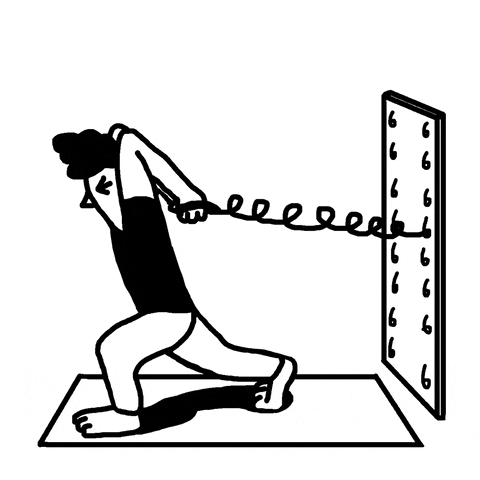“I have a dream!”
“I’m gonna make him an offer he can’t refuse.”
“The Kingdom of Heaven is within.”
“Do or do not, there is no try.”
When we think of powerful communication, we think of powerful ideas delivered with passion. We think that in order to communicate well, we have to have strong opinions, a sharp wit, or a very clear mission that fuels our every word.
But the idea that every person should have a singular life thesis or mission hardly represents human nature. No matter where we are in our storyline and self-discovery, we don’t have to be an activist or thought leader to say what we mean. Instead of needing an idea to give us power, our communication can be strong based only on a strong sense of self.
Even the gentlest person can bring a strong presence when their communication isn’t hiding, deferring, or leaking energy in every other word.
The easiest place to start is in the things you learn not to say.
Aside from omitting negative communication (we know that doesn’t work), when you start to edit out these bad habits in communication, you’ll have an easier and easier time saying what you mean.
The three starting habits give good reason to hold your tongue.

1. The Voices in Your Head
One of the tools I learned from my therapist is about the various voices in our thoughts. She would say that there are at least 3 different kinds of voices giving commentary: The critical parent, the adult, and the child’s voice.
The critical parent is your inner critic. It often sounds in your head like your parent, grandparent, coach, or teacher’s voice who was hard on you. When the parent voice is balanced, it can nurture and soothe you. When it’s imbalanced, it can be the voice of shame.
When the critical parent runs your communication, you end up nagging others or niggling yourself to death with self-deprecation.
The adult voice is your rational awareness and can be the voice of your inner compass. This voice can be quieter than the others, it’s the seat of your discernment. When you communicate from this place, your communication will be more mature.
The child voice is your raw emotional self, especially when emotions are interpreted through fear or reaction. A healthy inner child voice provides wonder, emotional sensitivity, and play. But when the inner child feels unsafe, the voice sounds like a tantrum.
When the inner child voice takes over your communication, your words will run away with you, creating phantoms, hurting others, or saying things you’ll regret later.
It takes practice to recognize which voice in your head wants to come out of your mouth, but with a developed awareness, you can give voice to all of them through the consideration of the adult.

This means: If you want your communication to be powerful, don’t speak or text from runaway emotions or criticism. Hold that thought. Let it cook a little bit, and usually, the adult voice will show up to communicate those sensations with more tact.
The interesting thing is, the voices we allow to take over become stronger neural pathways. If we can choose to omit the critical parent voice and the emotional child’s voice in our communication, these voices that tell us we’re unsafe will have less influence.
2. The Weak Words of People-Pleasers
This one is for all my fellow recovering people-pleasers. We like to explain away our reasons to justify our choices, and we apologize way too much. So preoccupied with fears of causing others discomfort (because then they won’t like us!), we make ourselves smaller in our communication.
You’ve probably heard this before: No is a full sentence.
And, apologies are for claiming responsibility.

I remember starting a little mantra in my head every time I wondered if I inconvenienced someone. “They can deal with me,” I thought.
Most people are so preoccupied fitting in the space available that they will deal with your clearly expressed actions, wants, and needs– in fact, they’d much rather know where you stand than wonder if you’re “making do” to make them feel better.
Obviously, there’s a line here, but the point is to quit filling our communication with obsequious apologies and explanations.
3. Leaky Words
“You just shall not pass…!”
Somehow, Gandalf’s epic line sounds pathetic with the word “just” sneaked in.
Similar to the previous category, this one is about all those words we use to hedge and dilute our speech, like “probably,” “just” “whatever” “I don’t know” “try” “maybe” “like” “literally” … etc.
We weaken our speech with these, leak energy, and end up coming across as uncertain.

My trainer tells me not to make old-lady sounds when I lay down on the mat, and not to huff and puff when my muscles are torched. “Contain it,” he says. “Close your mouth. Don’t send the message to your body that you’re incapable.”
So, when I’m about to lose an isometric position, I have to verbally say in a strong clear voice, “I need to let go” or, “I’m about to lose the position.” Without laughing, and without whispering. He never pushes me too hard, but he does have me meet the demand to the full.
I asked him to help me feel strong and capable, and I LOVE that he trains my body language as well. It feels like a full system upgrade, not just a muscular one.
Like it or not, every message we speak sends a signal to our brain, body, and environment.
4. Giving Your Word
Growing up, things were serious when the pinky-promise came out. No backing out of a pinky promise, we knew, it was about as serious as a double-dog-dare.

Powerful people don’t consider their word to merely reference explicit promises, however. If they say anything will happen, it happens.
When we learn to stop speaking to outcomes we can’t guarantee, we’ll get a far greater sense of what we can accomplish in a given time. In turn, we’ll build more self-trust and credibility.
Nothing forces this habit more than running a client services business.
If I say I’ll have a deliverable by a certain date, my income and reputation hinges on delivering on time. If something comes up, I’ll immediately make a new promise – by the original deadline.
It’s absurd how much business will stick with me and refer me just because they know that they’ll hear from me and know what to expect.

Once again, with this habit, we have to stop saying things to appease other people. We have to say our actual arrival time, make clear whether we can take on another project, and kindly say we’re not going to come when we intend to not go to an event. When we said we will do something, we’re obligated to do so.
Don’t be fooled by other people’s tolerance for low integrity with their word.
Their life probably works about as well as their word does. When you stop promising all the things you can’t guarantee, your communication will quantum leap along with your sense of self.
Start Here
There are more nuanced principles to know when silence is best, but these are the basics. These habits can be challenging enough to re-train when we’re not used to noticing what we do and don’t say.
Run a day-long experiment in each category, and you’ll be amazed how different you feel with a well-placed zipped-lip.


